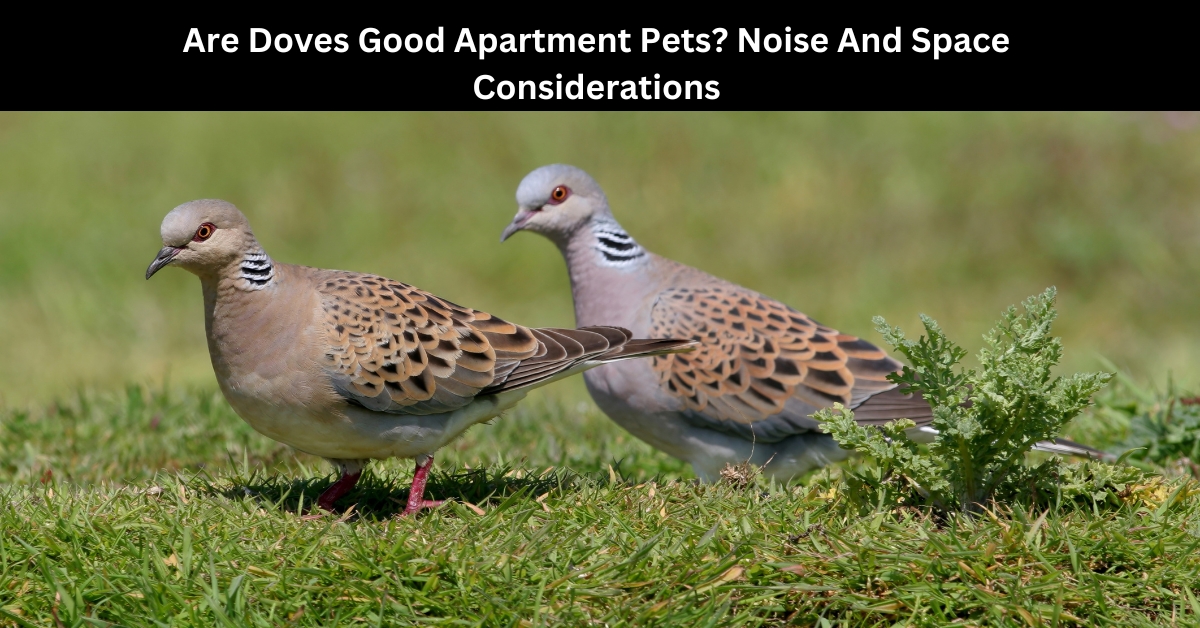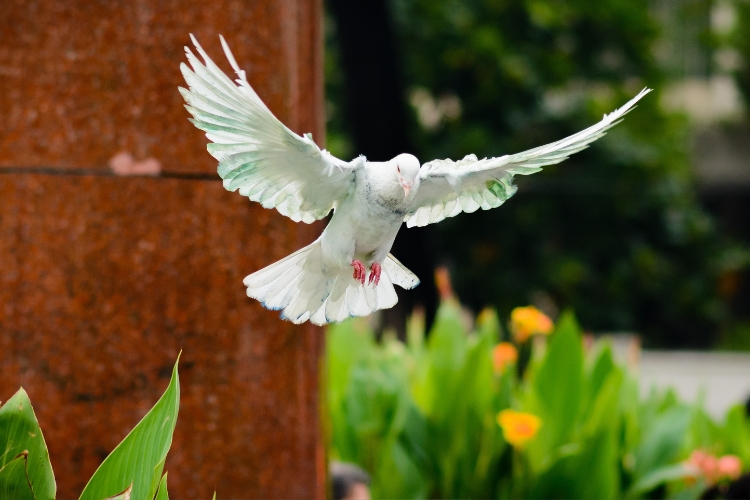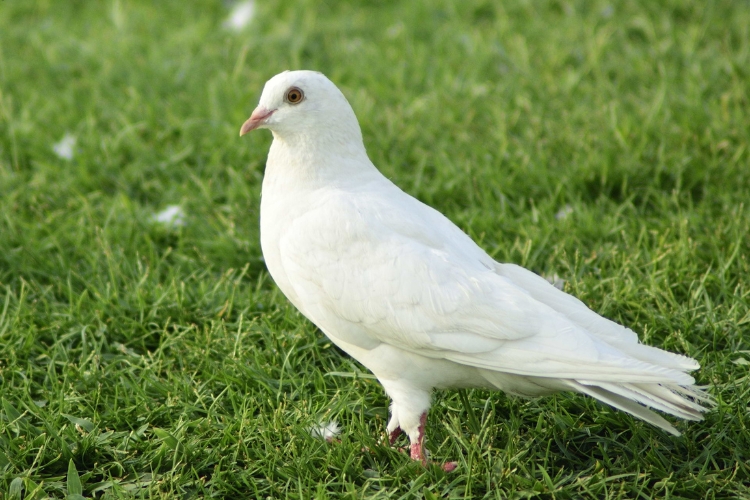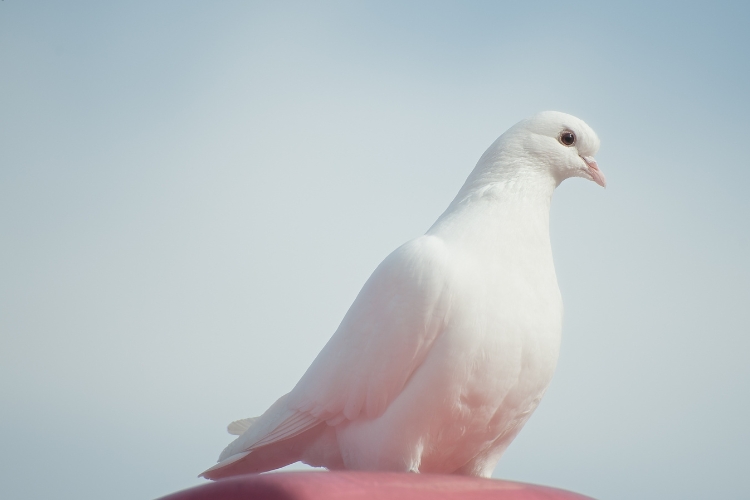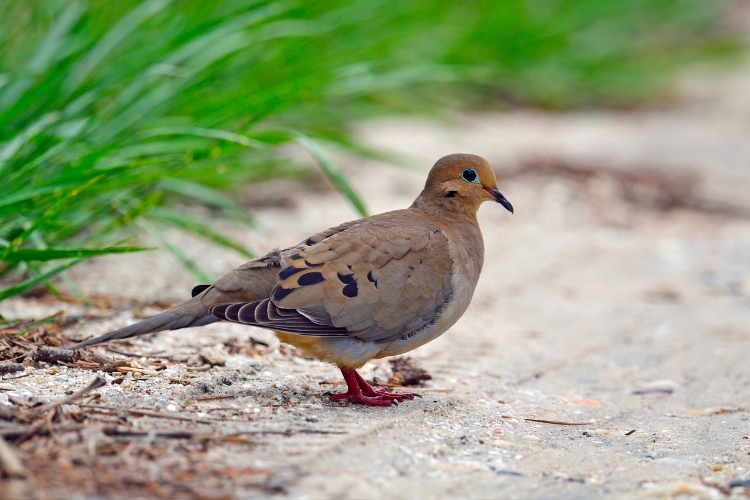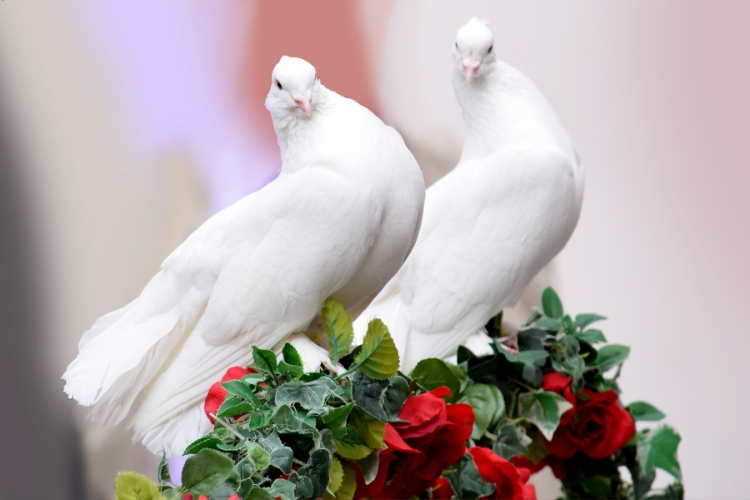Doves can make ideal apartment pets due to their calm demeanor, low noise levels, and manageable space requirements. While these gentle birds require thoughtful care, they thrive in smaller living spaces with the right environment and daily attention.
The article discusses various dove species suited for apartment living, space, and noise considerations, daily care routines, and social interaction needs. By understanding their specific requirements, apartment dwellers can provide a peaceful and enriching home for these feathered companions.
Key Takeaways:
| Key Consideration | Details |
|---|---|
| Noise Levels | Doves are quiet, with cooing sounds around 50-60 decibels. |
| Space Requirements | Minimum cage size: 24x24x24 inches; multiple perches needed. |
| Daily Care | Requires fresh water, seed mix, and daily cage cleaning. |
| Social Needs | Doves thrive in pairs and need daily interaction. |
| Species Recommendations | Diamond Doves (quiet, small) and Ringneck Doves (mild) are ideal. |
| Cost | Initial setup: $100-$250; Monthly maintenance: $30-$50. |
| Potential Challenges | Space limitations, noise sensitivity, and social interaction needs. |
1. Doves as Apartment Pets: Noise and Space Compatibility
Understanding Dove Behavior in Small Spaces
Doves are naturally calm and quiet birds, making them excellent candidates for apartment dwellers. Unlike parrots or other more vocal bird species, doves tend to have soft, gentle cooing that won’t disturb neighbors or create excessive noise. Their peaceful temperament allows them to adapt well to smaller living environments.
Space Requirements for Dove Habitats
While doves don’t need massive living spaces, they do require a carefully designed habitat. A typical apartment-friendly dove cage should be:
- At least 24 inches wide
- 18 inches deep
- 24 inches tall
This size provides enough room for movement, perching, and basic exercise without overwhelming your living space.
Noise Considerations for Apartment Residents
One of the most significant advantages of doves is their minimal noise production. Their gentle cooing ranges between 50-60 decibels, which is comparable to a quiet conversation. This makes them ideal for apartments with noise restrictions or sensitive neighbors.
Daily Care and Maintenance
Doves require consistent care that fits well within apartment lifestyle constraints. They need:
- Daily fresh water
- High-quality seed mix
- Regular cage cleaning
- Occasional wing and nail trimming
These maintenance tasks are relatively straightforward and won’t consume excessive time or create significant mess.
Social Needs and Interaction
Most dove species are social creatures that thrive on companionship. If your apartment allows, consider keeping a pair of doves. They form strong bonds and provide mutual comfort, reducing potential stress from being alone during work hours.
Potential Challenges in Apartment Settings
Despite their many advantages, doves do present some apartment-specific considerations:
- Potential allergen production
- Need for consistent temperature
- Requirement for regular veterinary checkups
Prospective dove owners should evaluate their living situation and personal commitment before bringing these birds home.
Recommended Dove Species for Apartments
| Species | Noise Level | Space Requirements |
|---|---|---|
| Diamond Dove | Low | Small |
| Ring-Necked Dove | Very Low | Medium |
| Ringneck Dove | Low | Small to Medium |
Financial and Time Investment
Doves are relatively affordable pets compared to dogs or cats. Initial setup costs range from $100-$300, with monthly maintenance expenses around $30-$50. They require less time-intensive care, making them perfect for busy apartment dwellers seeking animal companionship.
Ultimately, doves can be exceptional apartment pets for individuals willing to provide consistent care, understand their unique needs, and create a nurturing environment. Their gentle nature, minimal noise, and compact size make them an attractive option for urban pet lovers.
2. Selecting the Right Dove Species for Small Living Spaces
If you’re considering a feathered friend for your compact living space, doves can be an excellent choice. These gentle, relatively quiet birds offer companionship without overwhelming smaller apartments. Understanding the nuances of dove care in limited spaces requires careful consideration of specific species and their unique requirements.
Recommended Dove Breeds for Apartment Living
Different dove species have varying space and noise level characteristics that make them more or less suitable for apartment environments:
- Diamond Doves: Compact size (8 inches), relatively quiet, ideal for smaller spaces
- Ringneck Doves: Mild temperament, moderate vocalization levels
- Peaceful Doves: Smaller breed with minimal noise production
Space Requirements for Indoor Dove Habitats
Apartment dwellers must prioritize appropriate cage dimensions and enrichment. A typical dove habitat should include:
| Cage Dimension | Recommended Size |
|---|---|
| Minimum Width | 24 inches |
| Minimum Height | 18 inches |
| Recommended Depth | 16 inches |
Noise Considerations for Apartment Residents
Potential dove owners should understand vocalization patterns. Most dove species produce soft cooing sounds ranging between 50-60 decibels, comparable to normal conversation levels. Diamond doves, in particular, emit gentler sounds that rarely disturb neighbors.
Environmental Adaptation Strategies
Successful apartment dove keeping involves strategic environmental management:
- Place cage away from high-traffic areas
- Use sound-absorbing materials near habitat
- Maintain consistent daily routines
- Provide mental stimulation through toys and interactions
Essential Care Considerations
Apartment dove care demands consistent attention to:
• Nutritional balance
• Regular veterinary check-ups
• Consistent social interaction
• Clean living environment
• Temperature regulation
Potential challenges include limited flight opportunities and potential stress from urban noise. Mitigating these concerns requires thoughtful habitat design and dedicated care.
Behavioral Management Techniques
Doves thrive on predictable routines. Apartment dwellers should establish:
• Regular feeding schedules
• Consistent handling approaches
• Quiet interaction times
• Controlled socialization periods
While doves generally adapt well to apartment living, individual bird personalities vary. Prospective owners should spend time observing potential pets, understanding their unique characteristics before making a long-term commitment.
Financial and Time Investment
Apartment dove ownership involves ongoing expenses:
- Initial habitat setup: $100-$250
- Monthly food costs: $20-$40
- Annual veterinary expenses: $75-$150
- Supplemental enrichment items: $50-$100 annually
Successful dove companionship in apartments requires patience, understanding, and commitment to creating a harmonious living environment that meets both human and avian needs.
Selecting the right dove involves carefully balancing species characteristics, living space constraints, and personal lifestyle compatibility. With proper research and preparation, apartment residents can enjoy the serene companionship these remarkable birds provide.
3. Daily Care Requirements for Indoor Dove Habitats
Essential Habitat Cleaning Routine
Maintaining a pristine living space is crucial for dove health. Owners should plan to clean the cage thoroughly at least twice weekly, removing all droppings, replacing bedding, and disinfecting perches and food containers. Daily spot cleaning helps prevent bacteria buildup and ensures a hygienic environment.
Optimal Cleaning Supplies
- Mild pet-safe disinfectant
- Clean microfiber cloths
- Disposable gloves
- Fresh bedding materials
Nutritional Management
Doves require a carefully balanced diet to maintain their health. A high-quality seed mix specifically designed for doves should form the foundation of their nutritional intake. Supplementing with fresh vegetables, calcium supplements, and clean water is essential for their overall well-being.
Daily Feeding Guidelines
| Food Type | Daily Quantity | Frequency |
|---|---|---|
| Seed Mix | 2-3 tablespoons | Twice daily |
| Fresh Vegetables | Small chopped portion | Once daily |
| Fresh Water | Unlimited | Replenish twice daily |
Mental Stimulation and Exercise
Indoor doves need regular interaction and environmental enrichment to prevent boredom and maintain mental health. Providing diverse perches, safe toys, and occasional supervised out-of-cage time can significantly improve their quality of life. Rotate toys weekly to keep their environment engaging and stimulating.
Recommended Enrichment Activities
- Soft hanging toys
- Mirrors designed for birds
- Natural branch perches
- Foraging puzzles
Health Monitoring Practices
Daily health checks are critical for early detection of potential issues. Observe your dove’s behavior, checking for signs of lethargy, changes in droppings, unusual vocalization, or reduced appetite. Consistent monitoring allows for quick intervention if health concerns arise.
Daily Health Observation Checklist
- Bright, alert demeanor
- Clean, smooth feathers
- Normal breathing patterns
- Active movement
- Regular eating and drinking
Temperature and Humidity Control
Indoor doves are sensitive to environmental conditions. Maintain a consistent room temperature between 65-75 degrees Fahrenheit, avoiding drafts and sudden temperature changes. Use a humidity monitor to ensure levels remain between 40-60%, which prevents respiratory issues and supports feather health.
By dedicating time to these daily care requirements, dove owners can create a nurturing environment that supports their pet’s physical and emotional well-being. Consistency, attention to detail, and genuine care are the cornerstones of successful dove companionship.
4. Social Behaviors and Interaction Needs of Domestic Doves
When considering doves as potential apartment companions, understanding their intricate social dynamics becomes crucial for potential owners. These gentle birds possess remarkable social intelligence and complex interaction patterns that significantly influence their ability to thrive in confined living spaces.
Flock Mentality and Companionship Requirements
Doves are inherently social creatures that develop strong emotional connections with their fellow birds and human caretakers. Unlike some pet birds that can tolerate solitude, doves deeply crave constant companionship. In natural settings, they live in tight-knit groups, maintaining elaborate communication networks through soft cooing and synchronized movements.
For apartment dwellers, this means:
• Recommending keeping doves in pairs or small groups
• Ensuring consistent social interaction
• Providing regular engagement and mental stimulation
Communication Strategies
Their communication repertoire extends beyond simple vocalizations. Doves utilize:
- Subtle body language
- Gentle wing movements
- Rhythmic head bobbing
- Soft cooing sounds indicating emotional states
These sophisticated communication methods reflect their advanced social intelligence, making them sensitive to environmental changes and human emotional cues.
Territorial and Bonding Behaviors
When housed in apartments, doves demonstrate remarkable adaptability but require carefully managed social environments. They form profound pair bonds, often maintaining lifelong partnerships. This characteristic makes them exceptional companions for individuals seeking consistent, predictable pet interactions.
| Social Behavior | Apartment Compatibility |
|---|---|
| Pair Bonding | High compatibility, low maintenance |
| Vocalization Levels | Moderate, generally quiet |
| Social Interaction Needs | High engagement requirements |
Psychological Well-being Considerations
Apartment environments demand deliberate strategies to support dove psychological health. Potential owners must recognize that these birds require:
- Consistent daily interactions
- Enrichment activities
- Predictable routine
- Calm, stable environments
Neglecting these fundamental social needs can lead to stress, behavioral complications, and potential health issues. Successful dove ownership in apartments hinges on understanding and meeting their intricate social requirements.
Interaction Dynamics with Humans
Unlike more boisterous pet birds, doves develop nuanced relationships with humans. They appreciate gentle handling, respond positively to soft speaking tones, and can recognize individual human family members. Their empathetic nature allows them to sense human emotions, creating a unique interspecies connection.
Apartment dwellers should invest time in:
• Gradual trust-building
• Consistent, patient interactions
• Creating safe, structured engagement routines
Potential Challenges
While doves offer remarkable companionship, apartment owners must prepare for potential challenges:
- Limited flight space
- Noise sensitivity
- Need for specialized diet
- Regular social interaction requirements
By understanding these social intricacies, potential dove owners can create harmonious living environments that nurture these delicate, emotionally intelligent birds. Successful integration depends on recognizing and respecting their profound social needs.
5. Potential Challenges and Practical Considerations for Apartment Dove Ownership
Space Requirements for Dove Housing
Doves need more space than many people realize. A typical apartment dove will require a spacious cage that allows for comfortable movement, typically measuring at least 24 x 24 x 24 inches. Smaller spaces can lead to stress and limited physical activity, which can negatively impact the bird’s health and behavior.
Recommended Cage Specifications
- Minimum width: 24 inches
- Bar spacing: No more than 1/2 inch apart
- Multiple perches at varying heights
- Room for wing stretching and short flights
Noise Considerations in Apartment Living
Doves are not silent pets. While they’re generally quieter than parrots, they produce distinct cooing sounds that can become noticeable in close living quarters. Ring-necked doves, in particular, can create persistent vocalizations that might disturb neighbors or cause friction in apartment settings.
Potential Noise Levels
| Dove Type | Average Decibel Level | Noise Characteristics |
|---|---|---|
| Ring-necked Dove | 50-60 decibels | Frequent soft cooing |
| Diamond Dove | 45-55 decibels | Occasional gentle sounds |
Environmental Management Strategies
Apartment dove owners must create a controlled environment that mimics natural conditions. This involves maintaining consistent temperature, providing adequate lighting, and ensuring minimal drafts. Ventilation becomes crucial, as doves are sensitive to air quality and temperature fluctuations.
Critical Environmental Factors
- Maintain room temperature between 65-75°F
- Avoid direct sunlight and extreme temperature changes
- Ensure good air circulation without creating drafts
- Minimize exposure to kitchen fumes and cleaning chemicals
Social and Interaction Needs
Doves are social creatures that require consistent interaction and mental stimulation. In an apartment setting, this means dedicating time for daily engagement, providing enrichment activities, and potentially considering a companion dove to prevent loneliness.
Daily Interaction Requirements
- Minimum 2-3 hours of out-of-cage time
- Regular gentle handling
- Provide interactive toys
- Create a predictable daily routine
Practical Maintenance Considerations
Apartment dove ownership involves consistent cleaning and maintenance. Their living space requires daily spot cleaning, weekly thorough cage sanitization, and careful management of food and water areas to prevent mess and maintain hygiene.
Cleaning Recommendations
- Daily spot cleaning of droppings
- Weekly complete cage sanitization
- Use protective floor coverings
- Invest in specialized cleaning tools
While doves can make wonderful apartment pets for prepared and committed owners, they demand specific care and attention. Understanding these nuanced requirements helps ensure a harmonious living arrangement for both the bird and its human companions.
Conclusion
Deciding to welcome a dove into your apartment requires careful thought and preparation. While these gentle birds can make wonderful companions, success depends on matching the right species to your living environment and personal lifestyle. Diamond doves and ringneck doves emerge as top choices for apartment dwellers, offering manageable sizes and relatively quiet temperaments.
Your commitment to providing a spacious, clean habitat, regular social interaction, and dedicated care will significantly determine your dove’s quality of life. Potential owners must realistically assess their living situation, understanding that doves need consistent attention, proper nutrition, and a stress-free environment to thrive.
The key considerations – noise levels, space constraints, social needs, and daily maintenance – shouldn’t discourage passionate bird lovers. With thorough research and genuine dedication, apartment dove ownership can be a rewarding experience. Prospective owners should prioritize learning about specific dove species, consulting avian veterinarians, and creating a nurturing indoor ecosystem that supports their feathered friend’s physical and emotional well-being.
Before making a final decision, visit local breeders, spend time with different dove species, and honestly evaluate your capacity to meet their unique requirements. Remember that these peaceful birds are not just decorative pets but living creatures demanding consistent care, compassion, and understanding.
When approached thoughtfully, dove companionship can transform your apartment into a harmonious sanctuary, offering mutual joy and connection between human and bird. Your willingness to invest time, research, and genuine affection will determine the success of your dove-keeping journey.

